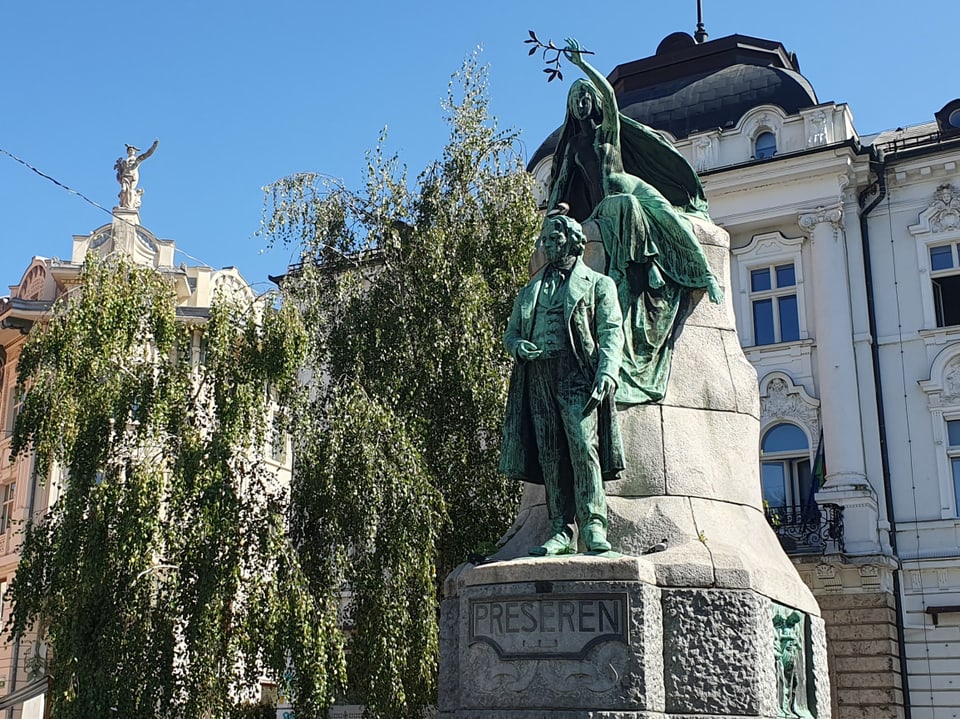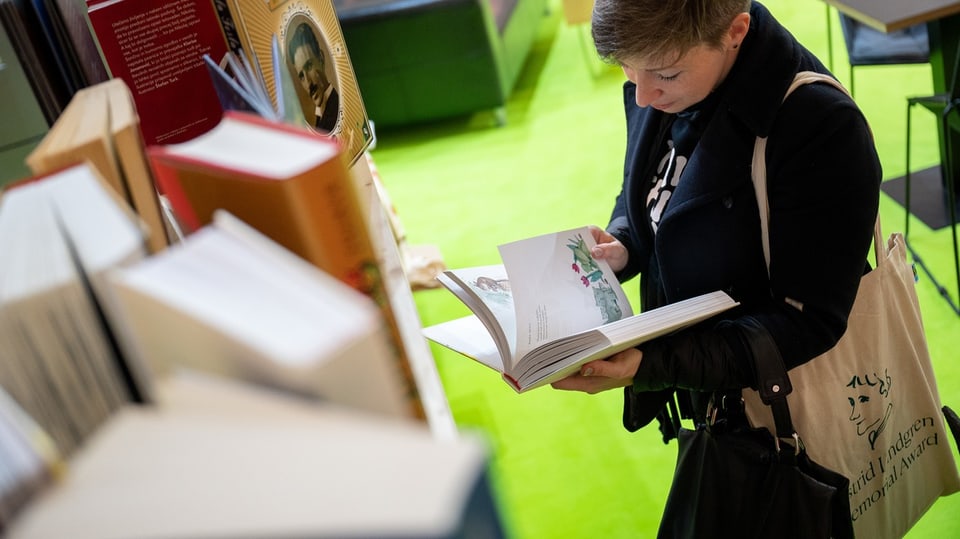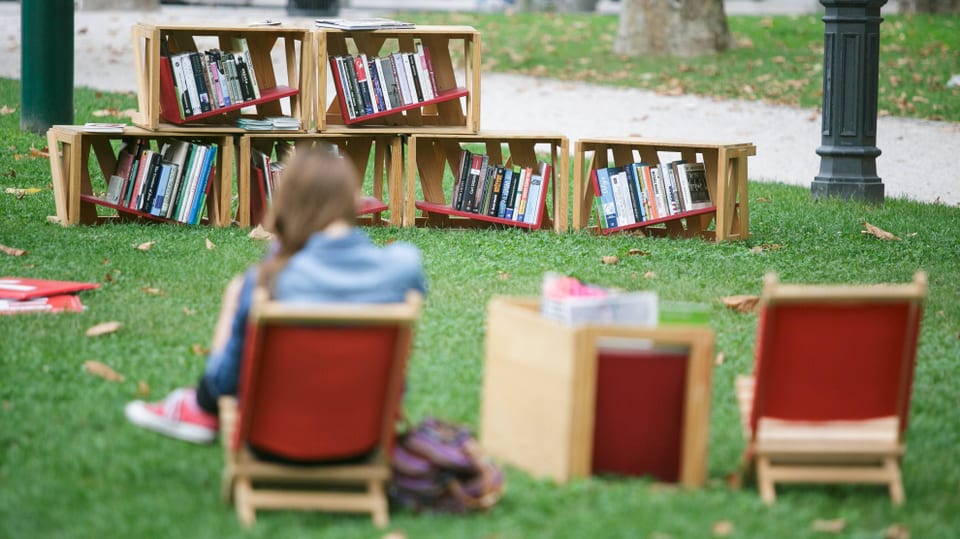Contents
Slovenia is guest of honor at the Frankfurt Book Fair. The country is small, but the literary production is enormous. How come?
“Don’t nod off on the Venice-Vienna train. Slovenia is so tiny, you might miss it. Better get up and stick your head out the window. Listen to my golden voice!”
In this poem, the Slovenian poet Tomaž Šalamun, who died in 2014, ironically sums up Slovenia’s fate. With only two million inhabitants, it is easily overlooked on the European map.
Tightest seal
Wrongly so: Slovenia has picturesque cities and impressive natural landscapes to offer. It also has an extremely rich seal. Literary production per capita is probably nowhere as high as here. In the capital Ljubljana alone, 850 literary titles are published every year.
Reading is popular: in Slovenia one in four people is a member of a library. Literature festivals are very popular. In 2015, UNESCO named Ljubljana a “city of literature” because of its vibrant literary life.
Legend:
Free open-air libraries like this one in Zvezda Park in Ljubljana can be found in various places in Slovenia.
IMAGO/Xinhua
Approachable literature
In small Slovenia, literature is “inevitable,” says the Slovenian author, publisher and translator Aleš Šteger. “Reading has a high priority in schools.”
People would also run into their authors sooner or later. “This motivates people to pick up their books.”
Nation built on literature
Literature has always been of great importance for Slovenia. Until independence in 1991, the country was always under foreign rule – Habsburg Monarchy, Kingdom of Yugoslavia, occupation by the Axis powers, Tito Yugoslavia.
Literature was very important to us. And she has kept it to this day.
Over the long centuries, the common language was the only unifying factor of the Slovenian nation. In the capital Ljubljana, the monument in the central square is not a general or statesman, but the poet France Prešeren – the “Goethe of Slovenia”. He sang about the Slovenian nation as early as the 19th century.

Legend:
In the old town center of Ljubljana there is a monument to the poet France Prešeren, the so-called “Goethe of Slovenia”.
SRF
Authors such as Ivan Cankar, who died in 1918, also enjoy a similar veneration. Or – more recently – Svetlana Makarovič. Both dealt with Slovenian identity in their literary work.
“Literature was very important to us,” says Aleš Šteger, “and it has retained that importance to this day.” This leads to many people writing literary. Or at least try.
Bloom thanks to support
However, the Slovene-speaking language area is too small for a book market that functions solely according to market economy criteria to thrive.

Legend:
The Frankfurt Book Fair takes place annually in October. This year’s guest country, Slovenia, presents its diverse literary landscape under the motto “Honeycomb of Words”.
KEYSTONE / DPA / SEBASTIAN GOLLNOW
According to the Slovenian literary critic Tanja Petrič, the country’s large book production can only be explained by the generous state subsidies.
However, the expanded support for literature also has a drawback. “With the volume that we produce, the quality of language and content is sometimes lacking.”
Promo thanks to the book fair
During the Frankfurt Book Fair, Slovenia will be the guest of honor with around 80 selected Slovenian titles that will be published in German for the first time. Appearing in front of an international audience is a “unique opportunity,” says writer Aleš Šteger.
If only to remind the rest of Europe “that there is a Slovenian language that even books are written in.”
